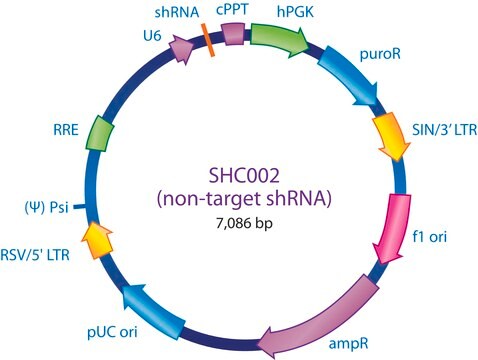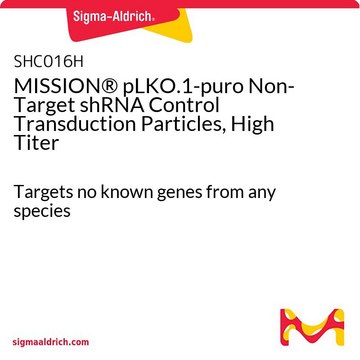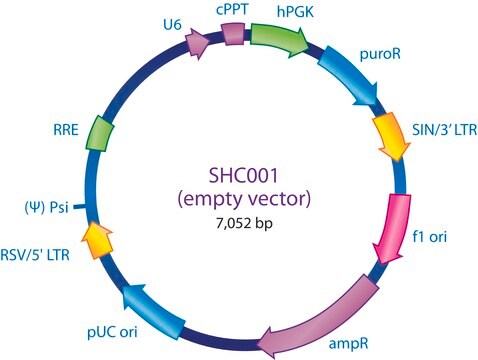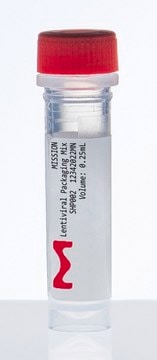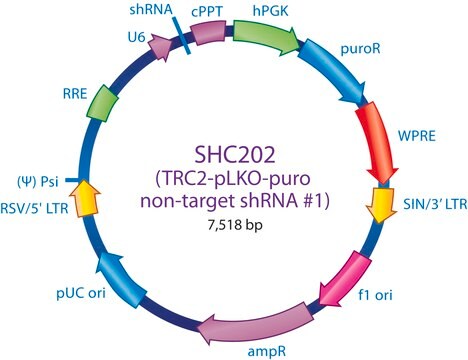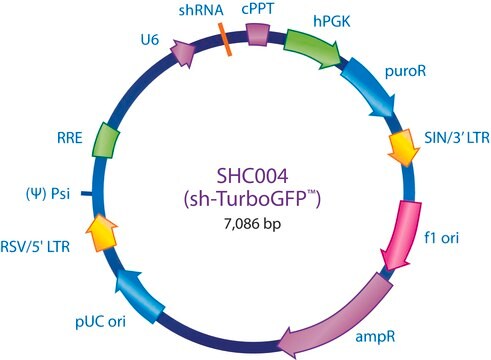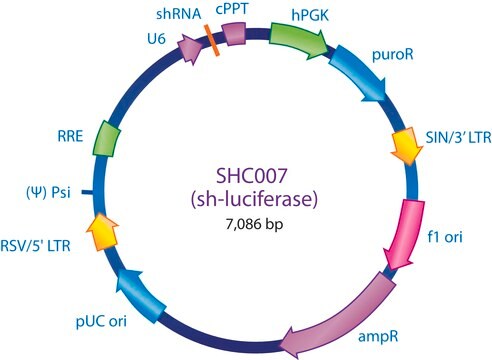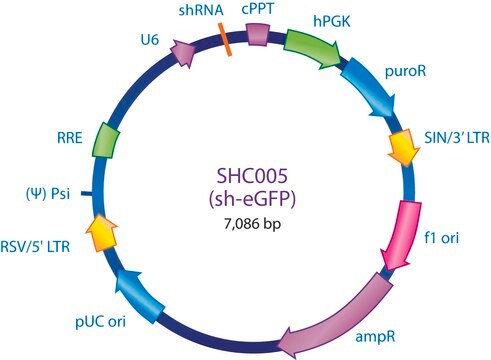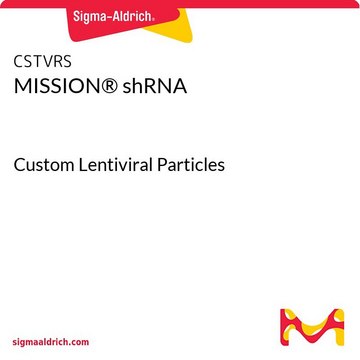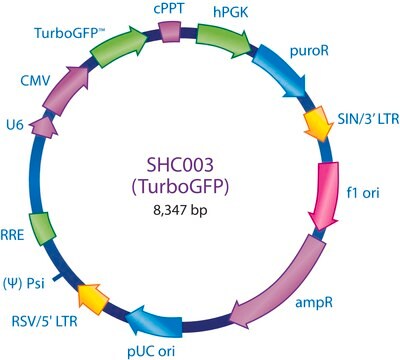SHC016V
MISSION® pLKO.1-puro Non-Target shRNA Control Transduction Particles
Targets no known genes from any species
Sinónimos:
MISSION®, MISSION® Control Transduction Particles, negative control, negative shRNA control, non-target control, non-target shRNA, non-target shRNA control, shRNA control
About This Item
Productos recomendados
Quality Level
product line
MISSION®
concentration
≥1x106 VP/ml (via p24 assay)
shipped in
dry ice
storage temp.
−70°C
¿Está buscando productos similares? Visita Guía de comparación de productos
Categorías relacionadas
General description
To see more application data, protocols, vector maps visit sigma.com/shrna.
Application
Analysis Note
Legal Information
Optional
Storage Class
12 - Non Combustible Liquids
wgk_germany
WGK 3
flash_point_f
Not applicable
flash_point_c
Not applicable
Certificados de análisis (COA)
Busque Certificados de análisis (COA) introduciendo el número de lote del producto. Los números de lote se encuentran en la etiqueta del producto después de las palabras «Lot» o «Batch»
¿Ya tiene este producto?
Encuentre la documentación para los productos que ha comprado recientemente en la Biblioteca de documentos.
Los clientes también vieron
Nuestro equipo de científicos tiene experiencia en todas las áreas de investigación: Ciencias de la vida, Ciencia de los materiales, Síntesis química, Cromatografía, Analítica y muchas otras.
Póngase en contacto con el Servicio técnico
